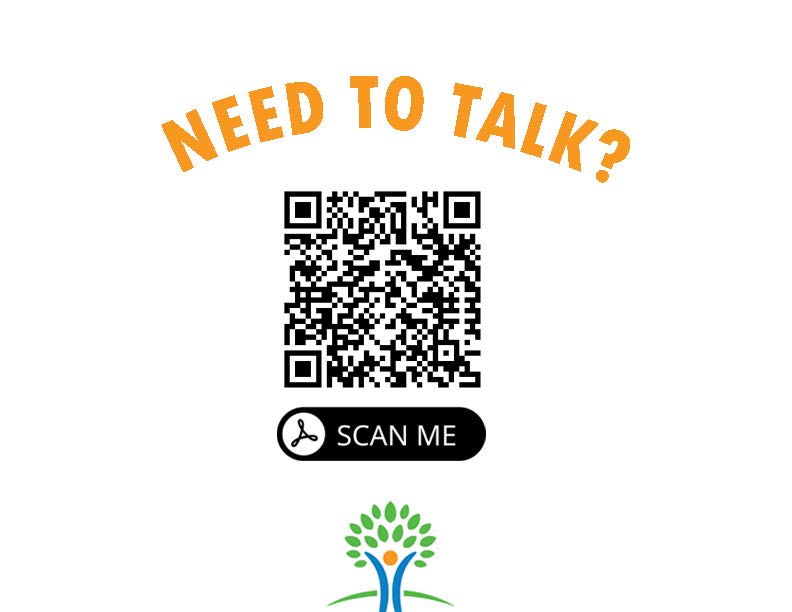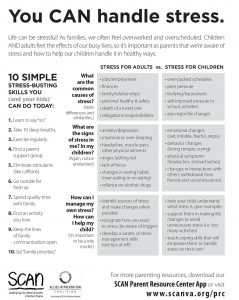
Arlington School Support Line
June 15, 2021
Our friends at Arlington Public School and Cigna have partnered up to provide a school support line linking vital resources for crisis and referral support…
April 28, 2016

Life is stressful. As overworked and overscheduled parents and children, we’re all susceptible to stress, especially in our fast-paced region. And children—even the youngest children—have anxiety and concerns which parents need to be aware of. How can you manage your own stress and learn to understand and reduce your child’s stress as well?
Many parents easily recognize the sources of stress in their own lives. But we often don’t realize that children have very different—and sometimes unexpected—sources of their own.
Children might not understand that the feelings they are having are stress. It may simply feel like sadness, exhaustion, anger or anxiety. These feelings might be new to them, and they are most likely unaware of how to handle them on their own.
Help your child understand what stress is, what causes it and how they can handle it.
You can empower them to handle stressful situations. Remember to tailor the information you present to your children based on their developmental level and their understanding of potential stress-inducing events.
Refrain from bombarding them with unnecessary information which could confuse them or even cause more stress. Basic coping strategies might include:
Create a supportive environment for your children to relax, de-stress and express themselves. Don’t over schedule your children! Ask them which activities bring them joy and be aware of those that bring anxiety or negative emotions. Unwinding is an important coping mechanism. Be sure your family has “downtime” together, when you can talk and de-stress together.
Ensure your child gets enough sleep each night and proper nutrition. When kids are healthy it is easier for them to cope with the stressors of everyday life.
Most importantly, listen to what your children are saying. Are they tired of their activities? Do they feel that they aren’t fitting in at school? Be aware of their stress level and look for ways to reduce it. You can help them deal with stress in healthy ways that they’ll use for the rest of their life!
The answer is yes. The 6 leading causes of stress in adults are similar with what causes stress in children;
First, identify your source of stress. What makes you stressed? Is it an internal or external source? Are there ways you can get rid or reduce those stresses?
Recognize how you react. Make sure you are not making unhealthy choices, such as excessive drinking and smoking, due to the stress in your life.
Develop an arsenal of stress management techniques you can use to help combat your stress:
Say “No” more often!
One of the biggest causes of family stress is simply TOO MUCH to do in a short period of time. Sit down as a family and make decisions about the traditions that are most important to all of you. You might be surprised to hear that your child is more interested in playing ball with you in the backyard than spending all weekend playing in a soccer tournament.
Make the decision to combat stress in your life and in the life of your child. Be aware of any changes in your child’s behavior or health which could be signs of stress. Work to keep yourself healthy in order to help take care of your children and work together as a family to reduce stress in your life by prioritizing (and trimming) your to-do list, getting things done and enjoying time together.
Remember, we need to pause for our children. No matter how fast the world might be moving around us, it’s critical that we pay attention to the kids in our lives. Take time out of your busy schedule to focus on your children, and know that it’s okay to ask for help!